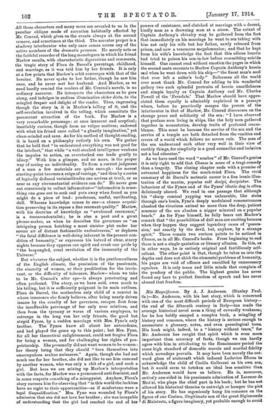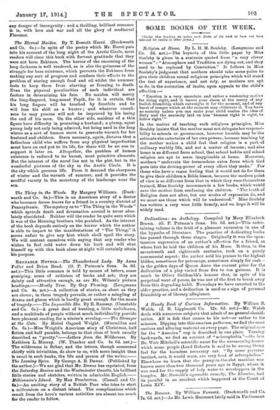Ris Magnificence. By A. J. Anderson. (Stanley Paul. Gs.)-111r. Anderson,
with his last story, which is concerned with one of the most difficult periods of European history— the end of the fifteenth century in Italy—has made the average historical novel seem a thing of cowardly weakness; for he has boldly essayed a complex book, a mingling of history and romance, where the history is serious enough to necessitate a glossary, notes, and even genealogical trees, His book might, indeed, be a "history without tears," for Mr. Anderson has caught that spirit which is even more important than accuracy of facto, though we can hardly agree with him in attributing to the Renaissance period the same high standard of domestic morale and marital fidelity which nowadays prevails. It may have been merely the out- ward gloss of statecraft which induced Lodovico Sforza to acknowledge the child of Ceciiia Gallerani as his own sou, but it would seem to betoken an ideal less sensitive than Mr. Anderson would have us believe. He is, moreover, entirely one-sided in his passionate admiration of Lorenzo de Med'ci, who plays the chief part in his book; but he has not allowed his historical theories to outweigh or hamper the plot of his story. He has ingeniously hung his romance on the figure of one eosin.", illegitimate son of the great Sigiamondo di Malatesta, a figure imaginary, yet probable enough to avoid
any danger of incongruity : and a thrilling, brilliant romance it is, with love and war and all the glory of mediaeval Florence.











































 Previous page
Previous page